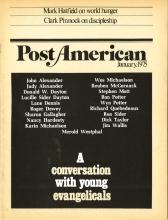Church bodies have been formed for any number of reasons--some noble and some not so noble. Few denominations have had their origins explicitly in witness against social evil, but there have been some. One such group was the Wesleyan Methodist Church of America, the oldest branch of the present Wesleyan Church formed by merger in 1968. The Wesleyan Methodists emerged as a protest against Methodist compromise on the issue of slavery.
Early Methodism had been characterized by vigorous opposition to slavery. As early as 1743 Wesley had written into his “General Rules” a prohibition against “the buying and selling the bodies and souls of men, women, and children, with an intention to enslave them.” His 1774 Thoughts Upon Slavery condemned “every gentleman that has an estate in our American plantations; yea, ALL SLAVEHOLDERS OF WHATEVER RANK AND DEGREE; seeing men-buyers are exactly on a level with man-stealers. You therefore are guilty, yea PRINCIPALLY GUILTY, of all these frauds, robberies, and murders. You are the spring that puts all the rest into motion.” And Wesley’s last letter, written just a few days before his death, encouraged William Wilberforce in his fight against “that execrable villainy” in these words: “Go on, in the name of God, and in the power of his might, till even American slavery (the vilest that ever saw the sun) shall vanish away before it.”
Read the Full Article

